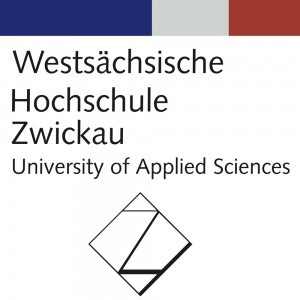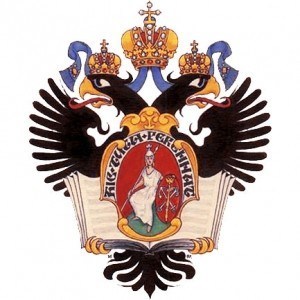Photos of university / #unikentlive
The University of Kent offers a comprehensive Bachelor of Arts degree in German and Film, designed to provide students with an in-depth understanding of both the German language and its rich cultural context, alongside critical engagement with film as an art form. This interdisciplinary programme combines language acquisition, cultural studies, and film analysis, enabling students to develop advanced linguistic skills, cultural awareness, and a nuanced understanding of cinematic history, theory, and practice. Throughout the course, students will engage with a diverse range of texts, films, and scholarly debates, fostering critical thinking and analytical skills that are applicable across numerous disciplines. The programme includes modules focused on German language proficiency at various levels, ensuring students can communicate effectively in both written and spoken forms. In addition, students will explore key topics in German culture, literature, history, and society, gaining insights into contemporary and historical issues relevant to the German-speaking world. The Film component covers foundational theories of cinema, film history, genres, and national cinemas, with a particular emphasis on German cinema, including notable movements, directors, and thematic developments. Students will have the opportunity to critically analyze films andproduce their own creative projects, enhancing their understanding of the technical and narrative aspects of filmmaking. The programme encourages international perspectives and intercultural understanding, preparing graduates for careers in translation, international relations, media, journalism, academia, and cultural sectors. With access to the University’s excellent resources, including dedicated language and film facilities, students can immerse themselves fully in their studies. The course also offers the possibility of studying abroad in German-speaking countries, providing experiential learning through immersion in native language and culture. Graduates of this programme will be equipped with strong communication skills, cultural literacy, and a versatile academic background that opens doors to diverse professional opportunities or further postgraduate study. The University of Kent’s supportive academic environment and innovative teaching methods ensure students receive a high-quality education that is both stimulating and relevant to today’s globalized world.
Detailed Course Facts
Application deadline January 15 Tuition fee Visit Programme Website Start date September 2015 Credits (ECTS) 180 ECTS- Total Kent credits: 360
- Total ECTS credits: 180
- Total Kent credits: 360
- Total ECTS credits: 180
- English
Course Content
Course structureThe course structure below gives a flavour of the modules that will be available to you and provides details of the content of this programme. This listing is based on the current curriculum and may change year to year in response to new curriculum developments and innovation. Most programmes will require you to study a combination of compulsory and optional modules, you may also have the option to take wild modules from other programmes offered by the University in order that you may customise your programme and explore other subject areas of interest to you or that may further enhance your employability.
Stage 1
Possible modules may include:
FI313 - Film Form
FI315 - Introduction to Film Theory
GE301 - Learning German 3 (Post A Level)
GE329 - Intensive Beginners German
GE331 - Learning German 2 (Post-GCSE German)
GE330 - Beginners' Danish: Language & Culture
GE311 - Varieties of German Writing
GE312 - Images of Germany, 1945-1990
GE326 - Introduction to German Literature (in translation)
GE327 - German Pronunciation and Phonetics
GE328 - Post-1989 German Cinema
Stage 2
Possible modules may include:
FI611 - New York & The Movies
FI621 - Television Series: Narration, Engagement and Evaluation
FI537 - Postwar European Cinema
FI594 - Film Authorship
FI595 - Film Genre (Horror)
FI597 - Animated Worlds
FI598 - Cognition and Emotion
FI599 - The Gothic in Film
FI600 - Film Criticism
FI602 - Documentary Film
FI606 - Avant-Garde and Experimental Cinema
FI607 - Storytelling and the Cinema
FI618 - Introduction to Screenwriting
FI619 - Images of War and Violence
FI565 - British Cinema
GE507 - Learning German 4
GE516 - German Post 'A' Level
GE564 - Looking into German 2
GE566 - German Modernism
GE586 - Medien und Öffentlichkeit
GE587 - Life After Modernism? An Introduction to Postmodernist Literature in Ge
GE580 - German Extended Essay
GE581 - Romanticism to Realism: Literature and Visual Culture
GE583 - Writing German - Applied Language Skills 1
GE584 - Order and Madness: Classical German Literature
Year abroad
The University of Kent has Erasmus agreements with several universities in Germany and Austria.
Possible modules may include:
LA514 - Year Abroad Module
Stage 3
Possible modules may include:
GE503 - Learning German 5
ART500 - Independent Project
FI620 - Images of War and Violence
FI608 - Film Authorship
FI555 - Introduction to Screen Writing
FI573 - Animated Worlds
FI577 - Cognition and Emotion
FI582 - New York and the Movies
FI584 - The Gothic in Film
FI585 - Film Criticism
FI622 - Television Series: Narration, Engagement and Evaluation
FI615 - Film Genre (Horror)
FI616 - Postwar European Cinema
FI617 - History of British Cinema
FI501 - The Documentary Film
FI506 - Avant Garde and Experimental Cinema
FI527 - Storytelling and the Cinema
GE506 - German Dissertation
GE567 - German Modernism
GE564 - Looking into German 2
GE500 - Advanced German Translation
GE588 - Life After Modernism? An Introduction to Postmodernist Literature in Ge
GE585 - Order and Madness: Classical German Literature
GE583 - Writing German - Applied Language Skills 1
GE582 - Romanticism to Realism: Literature and Visual Culture
Requirements
Home/EU studentsThe University will consider applications from students offering a wide range of qualifications, typical requirements are listed below, students offering alternative qualifications should contact the Admissions Office for further advice. It is not possible to offer places to all students who meet this typical offer/minimum requirement.
Qualification / Typical offer/minimum requirementA level
- ABB
- C in a modern European language other than English
- The University of Kent will not necessarily make conditional offers to all access candidates but will continue to assess them on an individual basis. If an offer is made candidates will be required to obtain/pass the overall Access to Higher Education Diploma and may also be required to obtain a proportion of the total level 3 credits and/or credits in particular subjects at merit grade or above.
- The university will consider applicants holding BTEC National Diploma and Extended National Diploma Qualifications (QCF; NQF;OCR) on a case by case basis please contact us via the enquiries tab for further advice on your individual circumstances.
- 34 points overall or 16 at HL including 4 at HL or 5 at SL in a modern European language other than English
Work Experience
No work experience is required.
Related Scholarships*
- Academic Excellence Scholarship
"The Academic Excellence Scholarship can provide up to a 50 % reduction in tuition per semester. These scholarships will be renewed if the student maintains superior academic performance during each semester of their 3-year Bachelor programme. The scholarship will be directly applied to the student’s tuition fees."
- Access Bursary
Bursary for UK students all subjects where the variable tuition fee rate is payable.
- Alumni Bursary
Alumni Bursary for UK Undergraduate students
* The scholarships shown on this page are suggestions first and foremost. They could be offered by other organisations than University of Kent.
The University of Kent offers a comprehensive degree program in German and Film, designed to provide students with a unique combination of linguistic proficiency and cinematic understanding. This interdisciplinary course aims to develop students' fluency in the German language while equipping them with critical skills in film analysis and production. Throughout the program, students engage with a broad curriculum that includes language modules focusing on grammar, vocabulary, conversation, and cultural studies, alongside film studies modules covering film history, theory, genres, and contemporary media practices. The program emphasizes both theoretical and practical knowledge, encouraging students to critically analyze European cinema and its cultural contexts, as well as to participate in creative projects such as short film production, scriptwriting, and digital media creation.
The university's facilities support this interdisciplinary approach, providing access to film studios, editing suites, and language labs to enhance hands-on learning experiences. Students are encouraged to undertake internships and study abroad opportunities in German-speaking countries, fostering linguistic immersion and cultural exchange. The program also benefits from the university's strong research community in both modern languages and film studies, with faculty members who are active researchers and industry professionals. Graduates of this program develop a versatile skill set that includes language proficiency, intercultural competency, media literacy, and creative production capabilities, preparing them for careers in international media, translation, cultural management, or further academic study.
Assessment methods vary between coursework, presentations, research essays, practical film projects, and examinations, ensuring a balanced evaluation of both linguistic and cinematic skills. The program's structure typically spans three years for full-time students, with options for joint or combined study modes, including opportunities for placement or Erasmus exchange programs. Despite the specialized focus on German and Film, students gain transferable skills valuable in numerous professional contexts, such as communication, critical thinking, and digital literacy. The university's vibrant student community, along with seminars, guest lectures, and industry events, further enriches the educational experience. This program is ideal for students passionate about European culture, language, and film, seeking a dynamic and engaging university education that bridges the arts and humanities.






